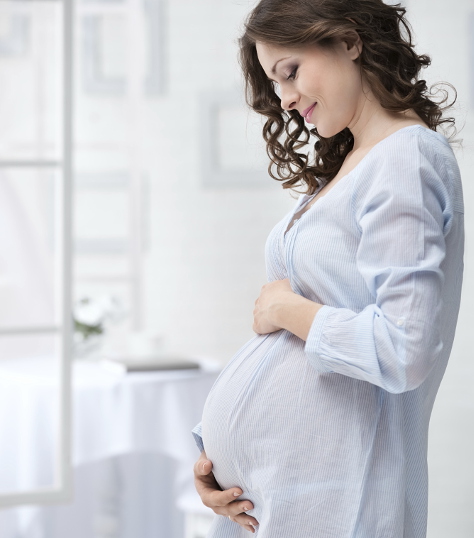How much does the size of your bump say about you?
Does a big bump mean a big baby? Does morning sickness affect the size of your bump? Here's the truth

Everyone likes to talk about bumps, big or small, high or low. Like babies, bumps come in all shapes and sizes. A first pregnancy can be smaller and tidier than a second but this isn’t always the case. Bump size depends (obviously) on how many babies you’re carrying and (less obviously) which way your baby is lying and the amount of amniotic fluid in the womb.
Like everything in pregnancy, there are lot of old wives tales about bumps and it’s important to separate fact from fiction.
1. Does big bump mean a big baby?
Not necessarily. Some mums look and feel as if they’re having a whopper and are quite shocked when a tiny little 7-pounder emerges. A large bump can simply mean a lot of fluid.
2. Does a small bump mean it’ll be an easier labour?
No, a labour can be as hard with a 6-pounder as a 12-pounder. How hard the birth is has more to do with the position of the baby and how relaxed and mobile you remain during labour - easier said than done, admittedly!
3. Are big babies hereditary?
Larger babies can run in families but often has as much to do with social factors as much as genetics. If a parent is overweight, the likelihood of a child having weight problems is higher.
4. Are there risks attached to a bigger bump?
A woman with a larger bump is usually no more likely to be at risk than one with a smaller offering. Having said that, the extra weight can be a strain and add to problems like haemorrhoids or varicose veins.
5. Can being underweight affect things?
Your BMI should be somewhere between 19 and 25. If it’s significantly under 19, the risks of having a low-birth baby or going into labour early do increase. Just stick to a healthy diet.
6. And being overweight?
If your BMI is over 30, the risks of complications such as high blood pressure, diabetes and pre-eclampsia rise - and those can be serious. You shouldn’t diet but it’s important not to get carried away with ‘eating for two’. Keep track of your calorie intake and cut back on high fat, high sugar foods to keep weight gain to a minimum.
7. Will morning sickness affect size of the baby?
Unless you have an extreme version of morning sickness - hyperemesis gravidarum - it’s unlikely that the baby will be at risk. Don’t force food down but try to eat simple, plain food little and often. Generally speaking, the queasiness will pass after the first trimester.